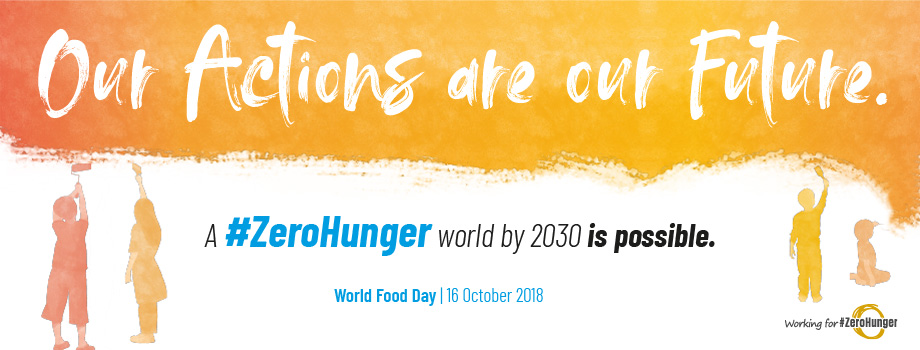Family farmers, private businesses, and government employees talk about their actions to achieve Zero Hunger.
“There have been changes in my life and the women laborers’ lives. The income is certainly higher now. There is something new every day”
Samar Ibrahim El Askary used to work in a citrus and grape export station in Egypt. Now she is a unit supervisor in a project designed to reduce food losses while generating new income from the country’s abundant tomato crop.
“Work here is good and going well,” says Samar, who comes from Abu El Matamir, Janaklis. She admits she’s had to adjust to spending so much time out in the sun after working in an air-conditioned space.
“There have been changes in my life and the women laborers’ lives. The income is certainly higher now. There is something new every day”.
This new role for Samar was made possible through an FAO activity on sundried tomato processing, which is part of a broader initiative aimed at reducing food loss and waste and boosting agricultural value-chain development in Egypt.
Egypt produces between 8.5 and 9 million tons of tomatoes annually and more than half are fully spoilt, or appear to be damaged by the time they reach consumers.
After being trained, Samar, in turn, has trained other women. Samar says many of the workers depend completely on the income from the food-processing project. All, she says, have learned new food-processing skills that they can use at home.
“I learned to avoid over-fertilization and losses on the farm”
Cultivating grapes takes a mix of agricultural know-how and constant adaptation in the field. This has been the experience of Mabrook Khamees, who has been farming grapes for 20 years now--and who is still learning new techniques.
“I definitely respect food because I get it only after I work hard and sweat,” he says.
Mabrook, who prefers the nickname Rabea, recently learned new techniques for pruning, spraying and other practices through an FAO training programme designed to help farmers maintain crop quality while preventing loss and waste along the food value chain.
“I learned to avoid over-fertilization and losses on the farm,” Rabea says. “Another thing I learned is how to pick grapes and how to get the right grape size”.
Rabea adapts the new techniques to conditions in the field. He also shares what he learns with others.
“For example, you might find an educated farmer but with specific concerns. He comes and asks me about concerns and I advise him”.
Rabea enjoyed a good harvest last year. Still, farming grapes remains a challenge amid weather and price fluctuations. Rabea still struggles to meet his expenses, but he remains optimistic that his efforts will improve his income and food security.
Story: Mabrook: Food for me means my family, which is my life - Boosting knowledge for a better harvest
“I believe the promotion of agro-industry in Egypt is today the only way that can help achieve zero hunger”
Mahmoud Taha runs a company in Egypt which has found a new market for the country’s surplus tomatoes. His company, Agri Tech for Environmental Trade, has discovered that sun-drying tomatoes is one way to keep extra produce from spoiling.
“In Egypt, we have large amounts of agricultural products lost and thrown in the Nile or set on fire, causing many problems,” Mahmoud says.
Egypt produces between 8.5 and 9 million tons of tomatoes annually and more than half are fully spoilt, or appear to be damaged by the time they reach consumers.
“When the market price is lower than the cost of harvesting tomatoes, farmers do not harvest, so we lose large amounts of tomatoes. We found that dried tomatoes have a good market internationally and Egypt produces tomatoes all year round,” says Mahmoud.
Mahmoud decided to market dried-tomatoes after attending Gulfood, the world’s largest annual food trade show, and food exhibitions in Germany.
Many sun-dried tomatoes are sourced through farmers’ cooperatives.
“I believe the promotion of agro-industry in Egypt is today the only way that can help achieve zero hunger,” Mahmoud says. “This would reduce losses in agricultural products and encourage farmers to produce high quality crops that can be used for either exports or manufacturing”.
The project on “Food loss and waste reduction and value chain development for food security in Egypt and Tunisia - Egypt component” is implemented by FAO Egypt and funded by the Italian Agency for Development Cooperation.
Related Media
Reducing Food Loss and Waste - Egypt
Mabrook - A grape farmer in Egypt
Tackling food loss & waste in Egypt

